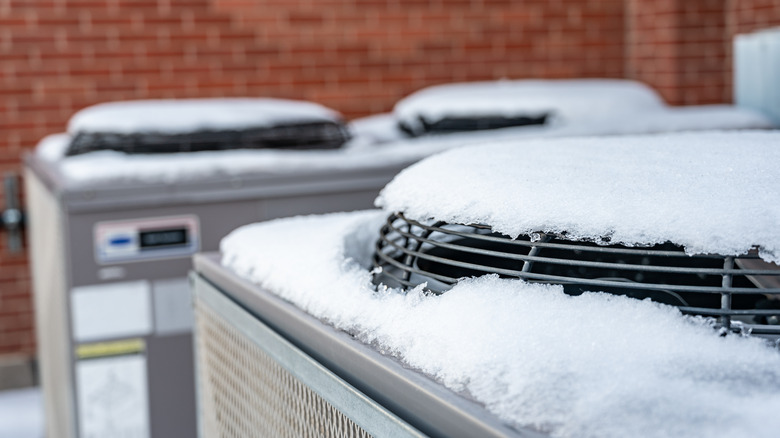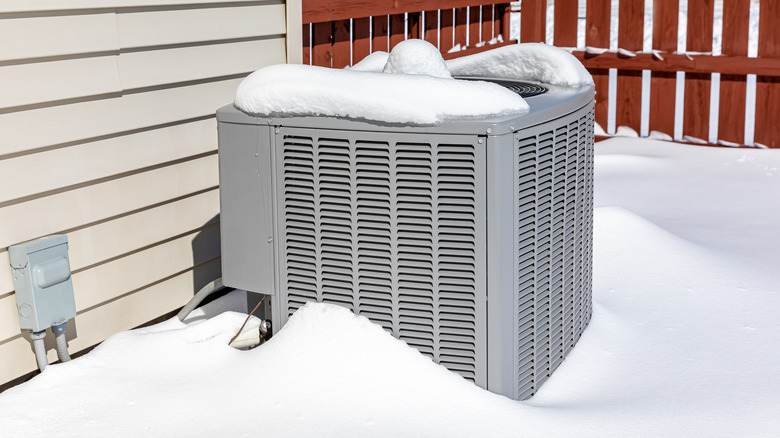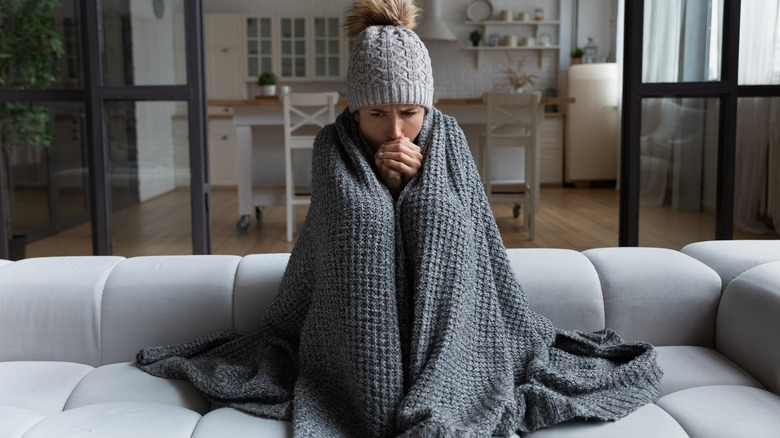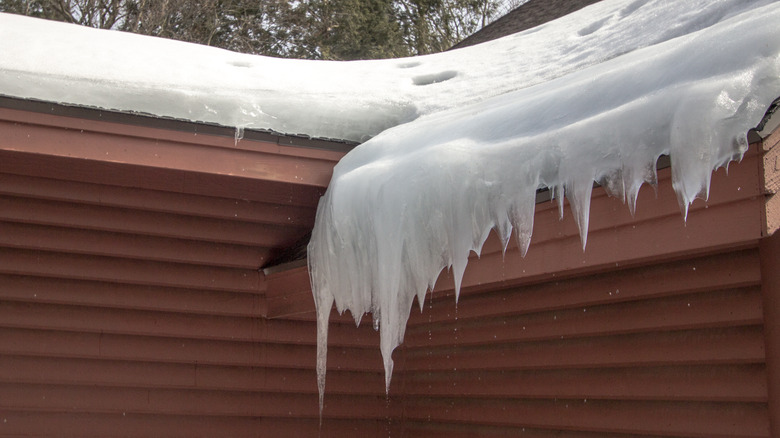How Snow Can Damage Your HVAC System
Winter weather is known to wreak havoc on your home's monthly energy bill, but sometimes icy and snowy weather can have an equally profound impact on the inner workings of your HVAC system. From snow accumulation that restricts airflow to damage caused by massive icicles careening down to earth, winter can be a treacherous time for your HVAC system. As such, it's important to understand how snow and freezing temperatures can damage your HVAC system, as well as ways to avoid experiencing any issues.
When it comes to your home's HVAC system, airflow is the name of the game. Thus, it may come as no surprise that two of the main ways snow and ice can affect your system are by blocking air intakes and exhaust lines (per Presidential Heat and Air). However, sometimes it's already too late by the time you clear the snow, as a substantial amount of moisture has already found its way into your HVAC system after melting and refreezing. Thankfully, though, there are a number of effective ways that you can prevent your HVAC system from falling victim to winter snow damage.
Snow can restrict airflow
While the average HVAC system is fairly adept at dealing with rainfall, snow and ice can present a problem since they take longer to evaporate and will linger on your HVAC unit if not manually cleared (per Perfect Degree HVAC). This can cause your system's airflow to be severely compromised, which puts a great strain on the system at a time when you're already relying on it heavily. Snow and ice can even lead to a significant drop in performance or costly repair bills, which is why you should clear precipitation from your HVAC system whenever you notice an accumulation.
However, before you bust out the icepick to clear ice from your HVAC system, you'll want to remember that you're dealing with an expensive and relatively delicate piece of machinery. According to Air Xperts, using a broom or a brush is much safer for your system when it comes to removing snow. If, however, you have to deal with accumulated ice, you should consider using hot water to soften it up instead of picking away at it with a sharp tool.
Your HVAC coils can freeze
Most experts recommend changing your home's HVAC filters at least every few months in order to optimize your home's energy efficiency and minimize strain on your system. However, ensuring that your home's HVAC filter is unencumbered by dust and debris might be even more important than you think when winter rolls around. This is because a dirty air filter can cause your HVAC system's coils to freeze due to restricted airflow (per American Residential Services). This happens because clogs restrict the amount of moisture that your HVAC system's condensate lines are able to drain.
Unfortunately, frozen moisture in your system's condensate lines can quickly lead to frozen HVAC coils, causing a noticeable deterioration of your system's ability to heat your home. In fact, it may also lead to your system failing to work at all, meaning you will need to rely on space heaters to heat your home until a repair specialist is able to fix your HVAC. Thankfully, replacing your air filter before winter weather strikes is an inexpensive and effective way to keep your system running throughout winter's wet and icy weather.
Other winter HVAC issues
While restricted airflow and frozen coils are probably the largest concerns your HVAC system will face every winter, they are far from the only unfortunate fates that can befall it. One such occurrence that takes many homeowners by surprise every winter is their HVAC system getting damaged by falling icicles. According to Presidential Heat and Air, some icicles can become heavy enough to damage your HVAC cabinet or its internal electronics after they break off from your home's gutter or roof. While this phenomenon won't happen to the majority of homeowners over the course of an icy winter, it is still worthwhile to clear the icicles above your HVAC system as a precautionary measure.
On the other hand, a less dramatic, yet far more dangerous issue to be concerned about over the winter is a carbon monoxide leak. According to Burchoil, winter represents the peak season for cases of HVAC-related carbon monoxide poisoning. As such, it's a good idea to have your system inspected by a professional and to test your home's carbon monoxide detectors in case the strain winter puts on your home's heating system causes a carbon monoxide leak.



